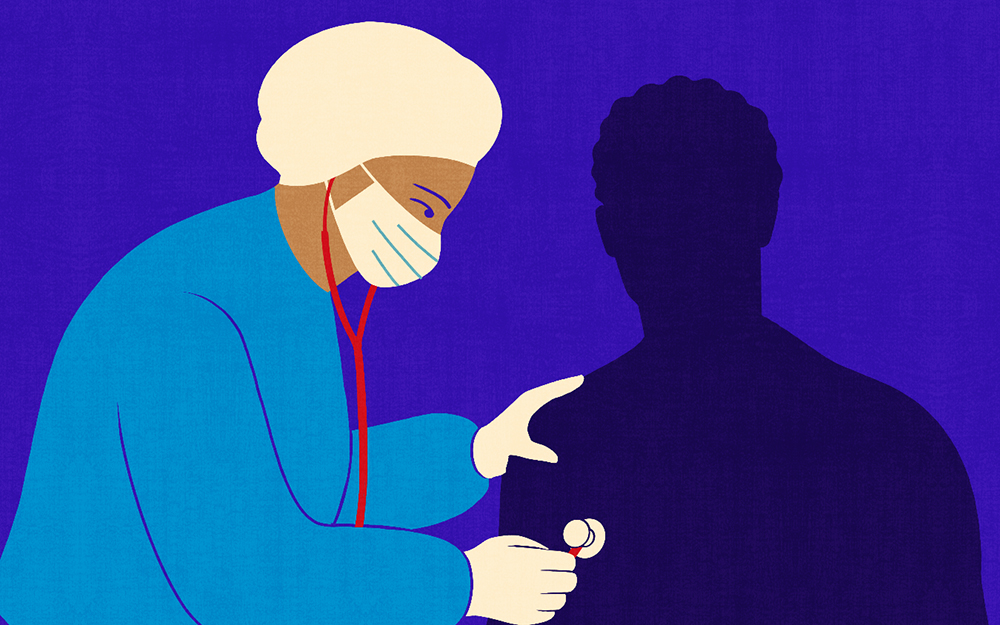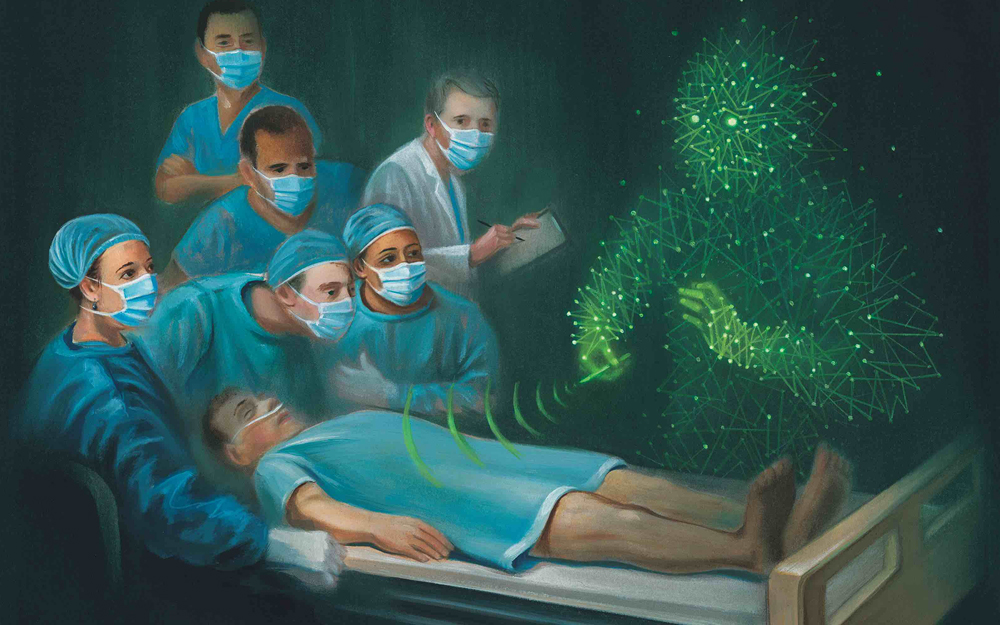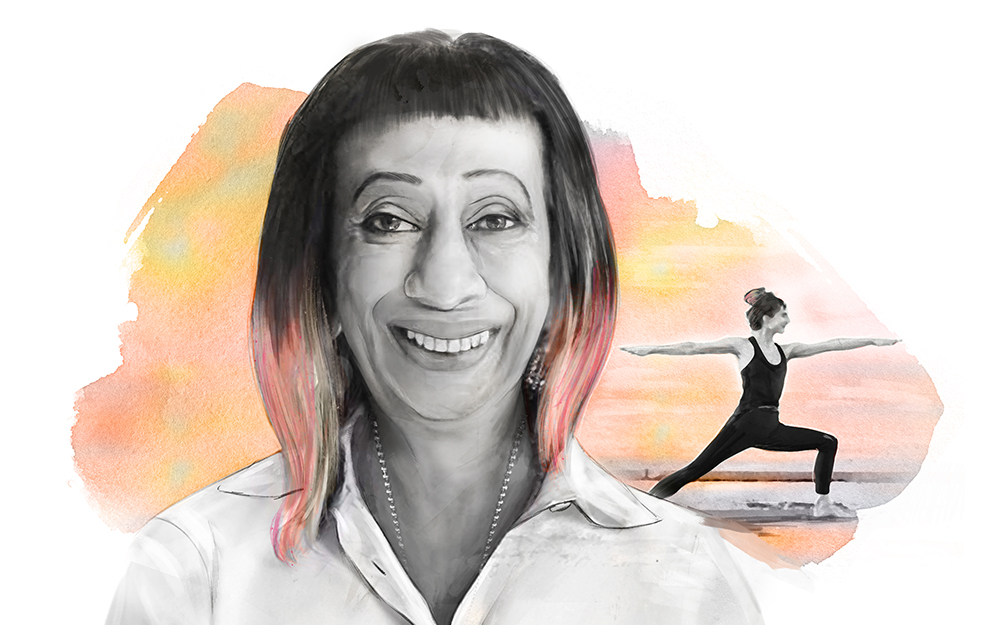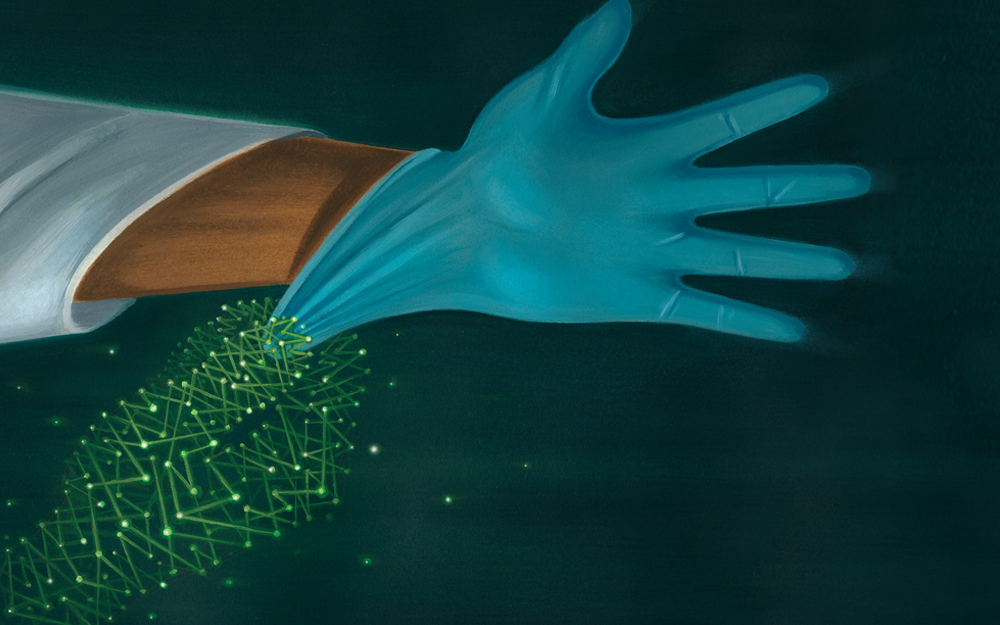Lesson No. 1: Refine Your Questions
Date
November 11, 2021
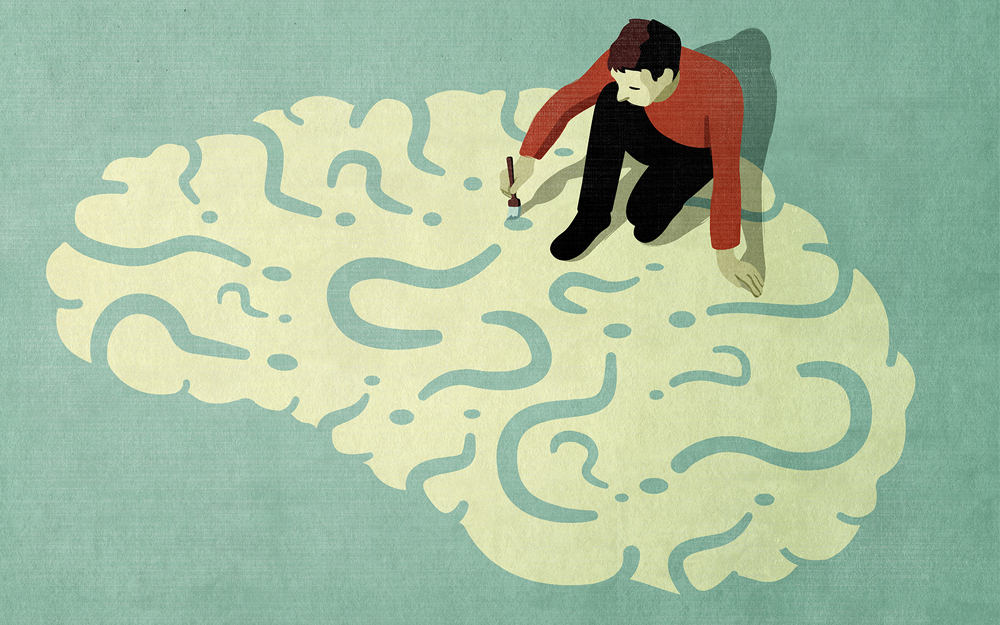
Date
November 11, 2021
Medical providers featured in this article
In Brief
{{cta-block}}
This article is one in the series How to Think Like a Scientist: A Crash Course. In this series, we investigate the practices and mindsets that help drive great science. We asked Cedars-Sinai researchers and experts to weigh in about the processes scientists use to shape their work and drive progress.
By the time we're old enough to speak in sentences, we're asking questions: Why is the world this way? How can we make it better?
Scientists ask versions of these questions, too—and the stakes of the questions they choose to ask can be as high as life or death.
"You've got to ask questions you're genuinely excited to know the answer to, because there's a good chance you'll spend months—if not years—addressing them," says Joanna Chikwe, MD, founding chair of the Department of Cardiac Surgery.
TRIAL AND ERROR
The Big Ask: Creating a Better Research Question
We asked a few scientists to share the rules they follow when generating their research questions. Here's what they told us.
A. Pursue the surprising observation. "A good question is one in which someone looks at a problem and they notice something—they see something that is different from what other people see. And then the question is: why?"
Keith Black, MD, chair of the Department of Neurosurgery, who studies the biology of the blood-brain barrier
B. Pose a question in which any answer will illuminate something that matters. "One of my mentors taught me that a worthwhile research question—one that's worth your time, effort and resources—is one in which the answer, whether positive or negative, will be interesting either way. If you know that an intervention doesn't work, for example, is that still important?"
Susan Cheng, MD, MPH, MMSc, director of Public Health Research in the Smidt Heart Institute, who asks questions about cardiovascular aging
C. Think ahead to your next questions. "It's a little like chess, where you're thinking four moves ahead. Sometimes that means you have to rethink the chess game if the answers are leading in another direction—but you're always thinking ahead. There's never a 'final question' until we get to the meaning of life."
Clive Svendsen, PhD, executive director of the Board of Governors Regenerative Medicine Institute, who investigates neurodegenerative diseases
Case study
The Question That Saved a Decade's Worth of Work—and Lifted a Patient Burden
Joanna Chikwe, MD, was stuck.
She knew that patients with a heart condition known as a leaky mitral valve could choose one of two major types of valve replacements as part of their treatment: a valve made of animal tissue or metal.
Either way had trade-offs. An animal-tissue valve would need to be replaced after a decade or so, requiring surgery. A metal valve would last longer but would require patients to take a daily blood thinner and lead to a slightly higher risk of stroke. But doctors didn't know whether one choice might ultimately give patients a longer lifespan.
The gold-standard study for such a question was a large, randomized trial, requiring researchers to follow two groups of patients for a decade or more. It would be expensive and time-consuming, and doctors wouldn't have good answers for their patients for years. "It wasn't practical," Chikwe says.
She ruminated on the problem until one day she had what she describes as "a classic light bulb moment." What if instead of collecting data for many years into the future, she and colleagues sifted through data from patients who had undergone similar procedures during the past 15 years and measured those outcomes? It was a way of using the past to help peer into current patients' futures.
Chikwe and her colleagues tracked down data from thousands of patients who had surgery for the condition during the previous 15 years. With support from a biostatistical team, they controlled for many variables that could have influenced the outcomes.
It wasn't a perfect recreation of a clinical trial, but Chikwe got access to valuable information far more quickly than she could have with a study started in the present.
The results? Survival rates were essentially identical, no matter which valve was chosen.
For Chikwe, an insightful reframing made all the difference. "When you've got a really important question with a number of ways to answer it, your goal is to recognize its limitations while maximizing its strengths," she says. "If you do it well, you can make a profound difference—you can help patients make an informed decision on something that can alter the course of their life."
How to Think Like a Scientist: A Crash Course
{{column-start}}
{{column-end}}
{{column-start}}
{{column-end}}
{{column-start}}
{{column-end}}
{{column-start}}
{{column-end}}
{{column-start}}
{{column-end}}
{{column-start}}
{{column-end}}

